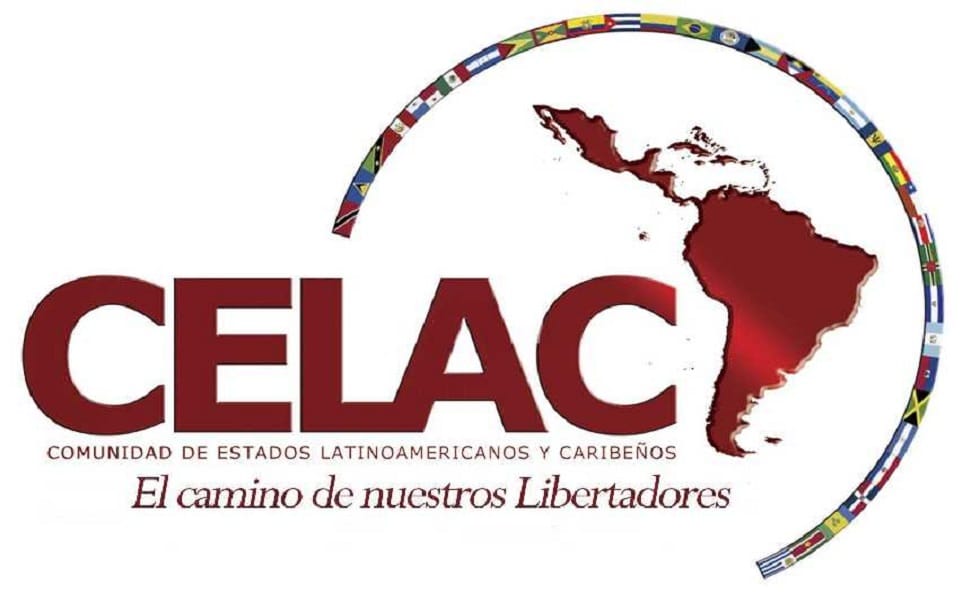
Symbol of the Community of Latin American and Caribbean States (CELAC). File photo.

Orinoco Tribune – News and opinion pieces about Venezuela and beyond
From Venezuela and made by Venezuelan Chavistas

Symbol of the Community of Latin American and Caribbean States (CELAC). File photo.
By Andrew Korybko – Jan 15, 2022
Venezuelan President Maduro proposed during his yearly speech to parliament last week “to unite efforts and paths in Latin America and the Caribbean to advance in the formation of a powerful bloc of political forces, of economic power that speaks to the world.” He added that this would simultaneously advance his Chinese counterpart’s vision of creating a community of shared future as well as his Russian one’s complementary goal of a Multipolar World Order.
There’s already a platform for achieving this though so no new one is needed, and that’s the Community of Latin American and Caribbean States (CELAC). Brazil’s voluntary suspension a few years back under former President Bolsonaro was just reversed by his successor Lula, thus returning the bloc to 33 members. This latest development can therefore breathe fresh life into CELAC and thus help it make tangible progress on President Maduro’s promising vision.
While it’s too early to predict the means through which this could happen, especially considering that some member states might impede this at the behest of their US patron, it’s still an exciting scenario. What it shows at least in principle at this point is that Western Hemisphere countries apart from the US and its Canadian “junior partner” stand a credible chance of collectively asserting themselves as an independent pole in the emerging Multipolar World Order.
That intention aligns with the trends that were analyzed by Russian scholar Leonid Savin in his book from 2020 titled “Ordo Pluriversalis: The End Of Pax Americana And The Rise Of Multipolarity”. The relevance to the present piece is that Savin correctly identified the Latin American and Caribbean countries as a pole of influence exactly as President Maduro later described them. This observation testifies to the prescience of that book’s insight and should hopefully inspire folks to read it.
Moving along, it should be said that the Venezuelan leader’s proposal also confirms the growing confidence of countries in his part of the world nowadays in defiance of the US’ efforts to reassert its declining unipolar hegemony over its so-called “backyard.” There’s no doubt that Washington’s aforesaid efforts have been a mixed bag of successes and setbacks, but altogether, the general trend is that the Latin American and Caribbean countries are becoming more independent of it and not less.
Building upon the observations from the preceding two paragraphs, the overarching trend is that International Relations are gradually evolving in the direction of becoming inter-civilizational ones like Savin foresaw over two years ago. This is evidenced by the popularity of bloc-based platforms like the African Union, ASEAN, Eurasian Economic Union, and European Union. It was therefore inevitable in hindsight that a Western Hemispheric counterpart like CELAC would rise to play a similar role.
Looking forward, expectations should be tempered with respect to what CELAC will achieve in the coming future, but nobody should think that it won’t achieve anything at all either. Rather, just like the US’ efforts to reassert its declining unipolar hegemony over the Western Hemisphere have been a mixed bag of successes and setbacks, so too will CELAC’s efforts likely be when it comes to playing a key role in multipolarity. Nevertheless, global trends are in its favor, which should inspire cautious optimism.
(Substack)

Andrew Korybko is an American Moscow-based political analyst specializing in the relationship between the US strategy in Afro-Eurasia, China’s One Belt One Road global vision of New Silk Road connectivity, and Hybrid Warfare. He is a frequent contributor to Global Research.